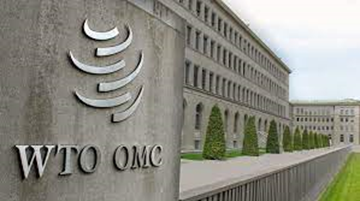
Ethiopia is one of the rapidly growing countries in the world registering double digit economy for the last decade and a half. It has abundant natural resources with more than 120 million population. Its economic main stay is agriculture which is the means of living for 85% of the population. The sector contribution to the economy is immense. It is the major foreign currency earner supplying about 75% of raw materials to the emerging agro-industries and food to the urban residents.
The nation mainly exports agricultural products with no or very little value addition. Among the products, coffee, oil seeds, chat, Vegetables and fruits and floriculture can be mentioned here. As compared to other developing countries, Ethiopia’s export volume is very small and the export destined countries are very few in number. Therefore, enhancing the quality and quantity of the export items and increasing the number of countries that receive Ethiopia’s products is essential. The Ethiopian airlines, in this regard, plays pivotal role in enhancing the nation’s foreign currency earning capacity through providing transport service to travelers and goods to and from foreign countries.
In fact, Ethiopia with enormous population is a land locked country in the Horn of Africa and heavily depends on the neighboring countries’ ports for its import and export trades and the situation makes the country in a disadvantageous position. Ethiopia transacts 90 % of its import and export trade through the port of Djibouti. The country currently leased the port to DP World (the Dubai Company) and the company imposes new fees for the port services as it wished arbitrarily which again put additional financial bourdon on Ethiopia which exacerbates inflation locally. The delay of export and import goods at the port of Djibouti due to congestion also incurs additional cost to pay for demurrage. Hence, joining the WTO is expected to reduce Ethiopia’s expense for port services.
According to economists, foreign trade plays pivotal role in advancing the nation’s economic growth. However, most developing countries suffer from trade imbalance that is to say, they import more goods and services than they export. As the result, they became highly indebted and allocate huge amount of their export earned income for debt services.
Similar to other countries, Ethiopia suffers from negative trade balance and while it earns about 3 billion USD from export annually, whereas it imports goods and services worth about 18 billion USD. Therefore, to close the gap Ethiopia should boost its export and realize its import substitution endeavor. Joining the World Trade Organization benefits Ethiopia because it can broaden its foreign trade destiny and diversifies its export items and helps to produce goods in qualitative manner so that it can penetrate foreign markets.
The WTO aspires for free trade by binding its Members with international commitments in terms of access to the goods and services markets, the use of economic policy instruments affecting trade, and the state support of agriculture.
According to the World Trade Organization documents, the system helps promote peace among countries through trade integration and by making them to need each other. The system also serves to handle trade disputes among countries in constructive manner and long lastingly. The rules introduced by the WTO make life easier for all.
Freer trade cuts the cost of living of the population of the member countries and provides more choices of products based on their quality and raises incomes of the countries. It also stimulates economic growth, reduce government’s expenditure for advertisement for their products and encourage good governance.
According to WTO, Peace is partly an outcome of two of the most fundamental principles of the trading system: helping trade to flow smoothly and providing countries with a constructive and fair outlet for dealing with disputes over trade issues. It is also an outcome of the international confidence and cooperation that the system creates and reinforces.
History is littered with examples of trade disputes turning into war. One of the most vivid is the trade war of the 1930s when countries competed to raise trade barriers in order to protect domestic producers and retaliate against each other barriers. This worsened the Great Depression and eventually played a part in the outbreak of World War II. Two developments immediately after the Second World War helped to avoid a repeat of the pre-war trade tensions. In Europe, international cooperation developed in coal, and in iron and steel. Globally, the General Agreement on Tariffs and Trade (GATT) was created. Both have proved successful, so much so that they are now considerably expanded—one has become the European Union, the other the World Trade Organization (WTO).
Putting the matter clearly, sales people are usually reluctant to fight their customers— usually. In other words, if trade flows smoothly and both sides enjoy a healthy commercial relationship, political conflict is less likely. What’s more, smoothly-flowing trade also helps people all over the world become well off.
People who are more prosperous and contented are also less likely to fight. But that is not all. The GATT/WTO system is an important confidence builder. The trade wars in the 1930s are proof of how protectionism can easily plunge countries into a situation where no one wins and everyone loses.
The short-sighted protectionist view is that defending particular sectors against imports is beneficial. But that view ignores how other countries are going to respond. The longer term reality is that one protectionist step by one country can easily lead to retaliation from other countries, a loss of confidence in freer trade, and a slide into serious economic trouble for all—including the sectors that were originally protected. Everyone loses.
Confidence is the key to avoiding that kind of no-win scenario. When governments are confident that others will not raise their trade barriers, they will not be tempted to do the same. They will also be in a much better frame of mind to cooperate with each other. The WTO trading system plays a vital role in creating and reinforcing that confidence. Particularly important are negotiations that lead to agreement by consensus and a focus on abiding by the rules.
Ethiopia will hold a pivotal fifth-round World Trade Organization (WTO) meeting that would help the country in joining the organization, according to the Ministry of Trade and Regional Integration.
Minister of Trade and Regional Integration, Gebremeskel Chala confirmed to local media that the meeting is anticipated to be held in the next month, May 2024.
Recalling Ethiopia first applied 20 years ago; the Minister stated that the negotiation endeavor was disrupted in recent years by the COVID-19 pandemic and other challenges. However, he revealed that Ethiopia has been intensifying its efforts and he mentioned a delegation visit to the WTO Director-General in Geneva, Switzerland back in July 2023.
According to him, this visit resulted in a three-year timeframe for Ethiopia to finalize negotiations and secure WTO membership.
Consequently, Ethiopia has received around 180 questions and 9 documents from member countries and potential negotiating partners, the minister pointed out. These inquiries will be addressed on a dedicated platform that will be facilitated by the WTO itself.
Gebremeskel noted that Ethiopia’s negotiating team to the WTO is well-prepared to navigate these discussions in a manner that ensures the nation’s economic development and commercial competitiveness. Ethiopia has held observer status at the WTO since 2003, similar to the European Union. This role has allowed the country to gain valuable insight into the organization’s workings and prepare for full membership.
The ministry is currently finalizing crucial documents required for WTO accession, he stated. These documents cover various aspects, including goods and services trade offers, import licensing procedures, information of public business enterprises, trade-related laws, and export subsidy and agricultural support details.
For Gebremeskel, Ethiopia’s determination to secure WTO membership demonstrates its commitment to deeper global trade integration. By successfully navigating the upcoming negotiations, the country can unlock new economic opportunities, enhance its commercial standing, and participate more actively in the international trade system, it was learned.
BY ABEBE WOLDEGIORGIS
THE ETHIOPIAN HERALD THURSDAY 11 APRIL 2024
Ethiopia is one of the rapidly growing countries in the world registering double digit economy for the last decade and a half. It has abundant natural resources with more than 120 million population. Its economic main stay is agriculture which is the means of living for 85% of the population. The sector contribution to the economy is immense. It is the major foreign currency earner supplying about 75% of raw materials to the emerging agro-industries and food to the urban residents.
The nation mainly exports agricultural products with no or very little value addition. Among the products, coffee, oil seeds, chat, Vegetables and fruits and floriculture can be mentioned here. As compared to other developing countries, Ethiopia’s export volume is very small and the export destined countries are very few in number. Therefore, enhancing the quality and quantity of the export items and increasing the number of countries that receive Ethiopia’s products is essential. The Ethiopian airlines, in this regard, plays pivotal role in enhancing the nation’s foreign currency earning capacity through providing transport service to travelers and goods to and from foreign countries.
In fact, Ethiopia with enormous population is a land locked country in the Horn of Africa and heavily depends on the neighboring countries’ ports for its import and export trades and the situation makes the country in a disadvantageous position. Ethiopia transacts 90 % of its import and export trade through the port of Djibouti. The country currently leased the port to DP World (the Dubai Company) and the company imposes new fees for the port services as it wished arbitrarily which again put additional financial bourdon on Ethiopia which exacerbates inflation locally. The delay of export and import goods at the port of Djibouti due to congestion also incurs additional cost to pay for demurrage. Hence, joining the WTO is expected to reduce Ethiopia’s expense for port services.
According to economists, foreign trade plays pivotal role in advancing the nation’s economic growth. However, most developing countries suffer from trade imbalance that is to say, they import more goods and services than they export. As the result, they became highly indebted and allocate huge amount of their export earned income for debt services.
Similar to other countries, Ethiopia suffers from negative trade balance and while it earns about 3 billion USD from export annually, whereas it imports goods and services worth about 18 billion USD. Therefore, to close the gap Ethiopia should boost its export and realize its import substitution endeavor. Joining the World Trade Organization benefits Ethiopia because it can broaden its foreign trade destiny and diversifies its export items and helps to produce goods in qualitative manner so that it can penetrate foreign markets.
The WTO aspires for free trade by binding its Members with international commitments in terms of access to the goods and services markets, the use of economic policy instruments affecting trade, and the state support of agriculture.
According to the World Trade Organization documents, the system helps promote peace among countries through trade integration and by making them to need each other. The system also serves to handle trade disputes among countries in constructive manner and long lastingly. The rules introduced by the WTO make life easier for all.
Freer trade cuts the cost of living of the population of the member countries and provides more choices of products based on their quality and raises incomes of the countries. It also stimulates economic growth, reduce government’s expenditure for advertisement for their products and encourage good governance.
According to WTO, Peace is partly an outcome of two of the most fundamental principles of the trading system: helping trade to flow smoothly and providing countries with a constructive and fair outlet for dealing with disputes over trade issues. It is also an outcome of the international confidence and cooperation that the system creates and reinforces.
History is littered with examples of trade disputes turning into war. One of the most vivid is the trade war of the 1930s when countries competed to raise trade barriers in order to protect domestic producers and retaliate against each other barriers. This worsened the Great Depression and eventually played a part in the outbreak of World War II. Two developments immediately after the Second World War helped to avoid a repeat of the pre-war trade tensions. In Europe, international cooperation developed in coal, and in iron and steel. Globally, the General Agreement on Tariffs and Trade (GATT) was created. Both have proved successful, so much so that they are now considerably expanded—one has become the European Union, the other the World Trade Organization (WTO).
Putting the matter clearly, sales people are usually reluctant to fight their customers— usually. In other words, if trade flows smoothly and both sides enjoy a healthy commercial relationship, political conflict is less likely. What’s more, smoothly-flowing trade also helps people all over the world become well off.
People who are more prosperous and contented are also less likely to fight. But that is not all. The GATT/WTO system is an important confidence builder. The trade wars in the 1930s are proof of how protectionism can easily plunge countries into a situation where no one wins and everyone loses.
The short-sighted protectionist view is that defending particular sectors against imports is beneficial. But that view ignores how other countries are going to respond. The longer term reality is that one protectionist step by one country can easily lead to retaliation from other countries, a loss of confidence in freer trade, and a slide into serious economic trouble for all—including the sectors that were originally protected. Everyone loses.
Confidence is the key to avoiding that kind of no-win scenario. When governments are confident that others will not raise their trade barriers, they will not be tempted to do the same. They will also be in a much better frame of mind to cooperate with each other. The WTO trading system plays a vital role in creating and reinforcing that confidence. Particularly important are negotiations that lead to agreement by consensus and a focus on abiding by the rules.
Ethiopia will hold a pivotal fifth-round World Trade Organization (WTO) meeting that would help the country in joining the organization, according to the Ministry of Trade and Regional Integration.
Minister of Trade and Regional Integration, Gebremeskel Chala confirmed to local media that the meeting is anticipated to be held in the next month, May 2024.
Recalling Ethiopia first applied 20 years ago; the Minister stated that the negotiation endeavor was disrupted in recent years by the COVID-19 pandemic and other challenges. However, he revealed that Ethiopia has been intensifying its efforts and he mentioned a delegation visit to the WTO Director-General in Geneva, Switzerland back in July 2023.
According to him, this visit resulted in a three-year timeframe for Ethiopia to finalize negotiations and secure WTO membership.
Consequently, Ethiopia has received around 180 questions and 9 documents from member countries and potential negotiating partners, the minister pointed out. These inquiries will be addressed on a dedicated platform that will be facilitated by the WTO itself.
Gebremeskel noted that Ethiopia’s negotiating team to the WTO is well-prepared to navigate these discussions in a manner that ensures the nation’s economic development and commercial competitiveness. Ethiopia has held observer status at the WTO since 2003, similar to the European Union. This role has allowed the country to gain valuable insight into the organization’s workings and prepare for full membership.
The ministry is currently finalizing crucial documents required for WTO accession, he stated. These documents cover various aspects, including goods and services trade offers, import licensing procedures, information of public business enterprises, trade-related laws, and export subsidy and agricultural support details.
For Gebremeskel, Ethiopia’s determination to secure WTO membership demonstrates its commitment to deeper global trade integration. By successfully navigating the upcoming negotiations, the country can unlock new economic opportunities, enhance its commercial standing, and participate more actively in the international trade system, it was learned.
BY ABEBE WOLDEGIORGIS
THE ETHIOPIAN HERALD THURSDAY 11 APRIL 2024




